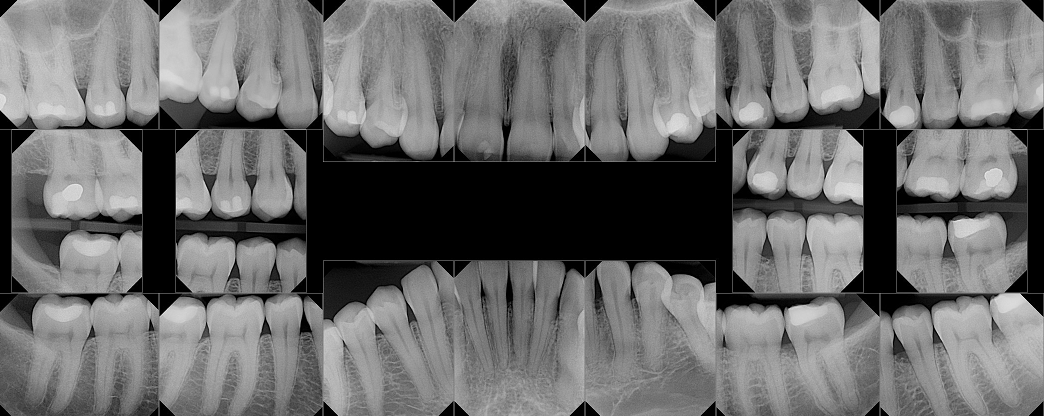Is My Dentist Ripping Me Off? - The (Not So) Ugly Truth About Dentistry
How many cavities do you see in the x-ray above? One? Five? Unless you're a dentist, you probably can't tell. In a hypothetical example, let's say Dr. Moe says you need three fillings, a root canal, and a crown. Dr. Larry says you need four fillings, and Dr. Curly says you need two fillings--when three different dentists give you three different diagnoses, who is right? Are one or more ripping you off? The resounding answer is possibly, but probably not.
Why am I being told different things by different dentists?
Well, like most professions, there are clear philosophical differences among dentists. The underlying diagnosis in terms of what the problem is, is typically identical, but the treatment plan, or the dentist's plan to address the situation, is what differs. Just like mechanics, engineers, physicians, or just about any other career path, when presented with a problem, the individual's training and experience weigh heavily into the approach taken.
Let's take the mechanic as an example. You bring your car into three mechanics for an oil change, one says you need a timing belt and new brake pads, the second mechanic says you need an alignment, and the third just does the oil change as you originally requested. Who is right? Well, maybe all three.
The first mechanic believes that you probably won't bring your car back in for at least a year. He knows your timing belt and brake pads will most likely go before then, so instead of seeing you broken down on the side of the road, with possibly far greater expenses in store for you, he'd rather resolve the issue for you now. He notices the alignment issue, but doesn't think it's severe enough to worry about now. The second mechanic believes the alignment issue is a safety hazard, based on his experience, but thinks you have another 10,000 miles left on your timing belt and brake pads, so it's something that can be dealt with later down the road. The third mechanic, like the first two, agrees that all three things should be done, but chooses to focus on specifically what you asked for. He understands you are a brand new client and doesn't want to be perceived as a swindler on your first visit, believing that the current issues do not need to be addressed immediately and can wait to be presented the next time you come in.
Dentistry is largely the same--albeit, while a trouble spot in a tooth can potentially remineralize or progression may slow to a crawl, brake pads won't change themselves. In dentistry, there are conservative dentists, or dentists that take a 'wait and see' approach and believe that the more minimal the restoration the better. On the other end you have more proactive dentists, or dentists that want to address the situation now before it becomes a larger issue later. We consider ourselves to be conservative, both in our diagnoses, approach, and restorations, however, that term has become more murky in recent years, with dentists that would traditionally be called proactive avoiding the label as it has become perceived as aggressive by patients. Our practice philosophy is such that unless something requires immediate attention, we prefer to monitor the situation in order to prolong the amount of time the natural tooth structure remains in place.
Let me also address the elephant in the room: the above scenario is predicated on all the dentists operating ethically. I won't pretend this is always the case, but I do think a majority operate in what they believe is best interest of the patient. With that said, there are bad apples in every industry, and I think collectively we need to do more to address it.
Which dentist can I trust?
So, how do you prevent yourself from being taken advantage of? You haven't been to dental school and there's a massive information disadvantage stepping into the dentist's office. This is where trusting your dentist is paramount. As a rule, we pride ourselves on being highly transparent and authentic, and as such, we never have a problem with second opinions. We provide some general things to look out for in another article, but in short, if you are uncomfortable at all with the diagnosis, seek out a second opinion. We are always glad to provide a second opinion and always encourage our patients to seek one out if they have any concerns whatsoever with a treatment plan. We also take every opportunity to ensure our patients are completely informed, from explaining the x-ray to the patient, to showing them pictures of the actual problem areas through the use of an intraoral camera. You should feel comfortable and confident in your treatment plan and feel you have been made fully informed on all of your options. If your dentist isn't doing similar, perhaps it's time to consider a change.


